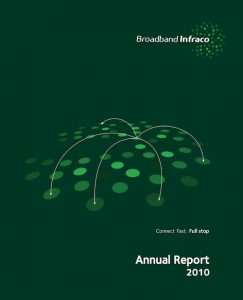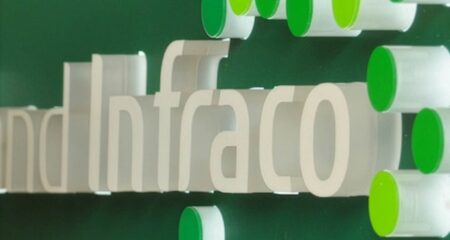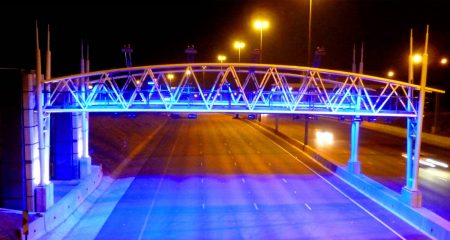
Broadband Infraco, the state-owned infrastructure provider that is expected to launch commercial services within the next few weeks, pumped R407m into its network in the 2010 financial year, up from R373m in 2009.
The increase was mainly due to the cost of network operations, maintenance and repairs, the company says in its latest annual report.
The higher spending pushed Infraco into the red, with it reporting a post-tax loss of R28,3m from a small profit in 2009. Earnings before interest, tax, depreciation and amortisation was a negative R9,7m, from R53,1m in the black previously.
The company says the losses were significantly less than budgeted for and are to be expected from a fledgling telecommunications company.
During the year, Infraco received R208m in funding from the department of public enterprises, down from R377m in 2009. This increased government’s cumulative equity funding contribution to R1,2bn since Infraco’s launch. Government directly holds 74% of Infraco’s equity, with the Industrial Development Corp (IDC) holding the remaining 26%.
The IDC pumped R73m into Infraco in 2010, from R353m in 2009, bringing its total equity investment to R426m.
Most of the money was used to fund network spending and other working capital requirements.
The company says it will require about R145m in debt financing during the 2011 financial year to fund ongoing investment in national and international infrastructure.
Meanwhile, Infraco has also used its 2010 annual report to provide details of its product strategy.
It will offer national connectivity to licensed telecommunications operators at speeds of up to 10Gbit/s.
It will provide operators with national connections at speeds of 155Mbit/s, 622Mbit/s, 2,5Gbit/s and 10Gbit/s. Ordinary consumers and businesses can’t buy services from Infraco, only operators. Government established Infraco as an alternative to Telkom in national backhaul services in an effort to bring down telecoms prices.
Infraco will offer telecoms circuits on a leased basis, or provide an “indefeasible right of use” (IRU). The latter is equivalent to part ownership, or having unfettered access to a portion of cable for its operating lifetime (typically 10 years), it says.
“The company expects to conclude a number of sales transactions as soon as the network commercialisation process has been completed,” it says in the annual report.
Until now, Infraco has had only one customer, Neotel.
In the past year, Infraco has expanded its optical transmission capacity by 75% to address growing demand from Neotel and to prepare for commercial launch.
It has also connected SA to Namibia, Zimbabwe and Botswana by rolling out an additional 420km of fibre and building new long-distance repeater stations. It now connects to six neighbouring states.
Infraco operates more than 12 000km of long-distance fibre and is constructing five point of presence around the country. It says these will give it improved access to the wholesale market at strategic points.
In addition, it’s building a network operations centre in Woodmead, north of Johannesburg. — Staff reporter, TechCentral
- Subscribe to our free daily newsletter
- Follow us on Twitter or on Facebook




